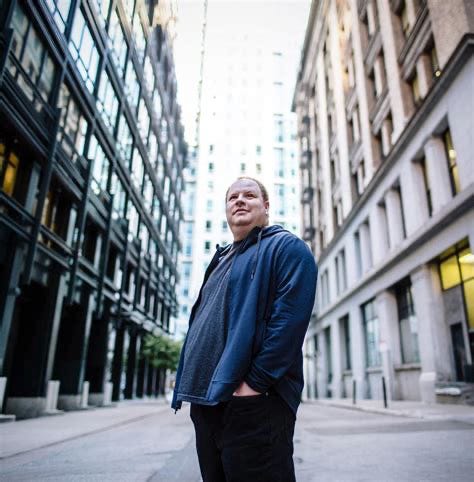Why Parker Conrad’s Contrarian Playbook on SaaS & AI Is a Blueprint for Repeat Founder Success
I usually ignore most episodes I consume. But this one? Unmistakably signal. Here’s how Rippling scaled by breaking every conventional rule—AI, product architecture, IPO assumptions, you name it.
I don’t usually write about everything I listen to or read—there’s too much content and not enough signal. But every now and then, something cuts through the noise. This episode of No Priors with Parker Conrad (CEO of Rippling) and Sarah Guo did exactly that.
It wasn’t just insightful—it was a masterclass in contrarian thinking and how to scale a platform company when the rest of the world is optimizing for narrow slices and short sprints.
If you’re a founder, operator, or adrenaline junkie chasing scale, this one’s worth a re-listen. Here’s what jumped out at me—and why it might change the way you think about enterprise software:
1. 💡 “Replacing Ops with AI” Is a Myth Wrapped in PowerPoint
There’s a shiny new strategy floating around boardrooms: buy a services-heavy company, sprinkle in some AI, and voilà! Scalable software machine. Parker’s not buying it.
“We had this theory at Zenefits that we’d do a bunch of things manually, then replace them with software over time. But replacing ops with software is really hard—especially once you’ve scaled. It’s easier to start with automation and grow than to unwind messy ops later.”
Oof. As folks pile into vertical AI roll-ups and talk of distribution-first GTM, Parker’s cautionary tale is a reminder: scaling ops ≠ building leverage.
2. 🧱 Compound Startups: Not New, Just Forgotten
Parker is quietly reviving an old-school playbook that Silicon Valley forgot: build a suite of apps that work seamlessly together, instead of a dozen point solutions duct-taped by Zapier.
“People thought the right way to build software was to go narrow. But the best enterprise software companies—Oracle, SAP, Microsoft—were always compound startups. They invested deeply in shared capabilities like permissions, reporting, and workflows across applications. That’s how you build power.”
It’s not just a thesis—it’s Rippling’s religion. And in a world where the bar for enterprise buyers keeps going up, it might just be the only way to win.
3. 🚀 AI Isn’t 10x’ing Engineering Productivity (Yet)
Surprised? So was I.
“We’re a thousand-person engineering org. Copilot and other tools are popular, but we’re not seeing dramatic productivity gains. We’re not suddenly saying, ‘Wow, we need way fewer engineers.’”
This isn’t to say AI won’t transform engineering—it probably will. But right now, the gap between marketing deck and measurable ROI remains… stubbornly large.
4. 🧠 “Public Markets Are Like a Retirement Community”
Yes, Parker actually said this. And yes, it was glorious.
“The public markets have become a retirement community for slow-growth companies. Analysts call 20% YoY growth ‘high growth.’ If you’re growing faster, there are no comps—and that’s risky.”
This isn’t your typical anti-IPO tech bro rant. It’s a signal that the best founders no longer see going public as the pinnacle—it’s just another (possibly limiting) milestone. Liquidity is now available in the private markets. And the best companies are staying private longer because they can.
5. 🔥 Ownership > Task Management
Parker also dropped a clinic on organizational design—especially in a platform company where coordination between capabilities and application teams is a minefield.
“You want people who will find a way—not just choose between A and B, but say ‘why not A and B?’ It’s not about working 7 days a week, it’s about bridging impossible gaps. Most people are capable of 10x more than they believe—if you let them.”
One hiring trick? He tries to staff Rippling with former founders who think holistically: roadmap, GTM, competition, the works. Because if Parker has to drive every initiative, “balls get dropped.”
6. 🧬 AI Will Lead to More Specialization, Not Less
Forget “do more with less.” Parker sees a different AI future.
“As it gets easier to build software, I think we’ll see way more verticalization. Not fewer engineers—just more tailored systems. Like Rippling for ophthalmology clinics.”
This is the opposite of the “fewer humans” narrative. As expectations go up and complexity rises, AI might raise the bar—not lower it.
Final Thought
Startups are easy to glamorize. But Parker’s story reminds us how hard, personal, and unglamorous it can be—especially the second (or third) time around.
“I tell people: don’t start a company. Most people fail. It’s destructive—to your psychology, to your relationships. But if you have no other choice, maybe you’re wired for it.”
If that doesn’t hit like gospel, you might still be in the honeymoon phase.
🙏 Big thanks to Parker and Sarah for such an honest, deeply insightful episode. It wasn’t just thought-provoking—it was founder soul food.
You can listen to the full episode of No Priors here. Bring a notebook. You’ll need it.


